What are Fermented Foods & Why Eat Them? Here’s Everything You Need to Know.

Stay home & stay healthy!
Little did we know that would be our country’s motto in 2020. And if you’re looking for an extra boost to stay healthy or even a new way to use up some of the veggies in your fridge, then I’m sharing just the solution you need!
Fermented foods.
They enhance the texture and taste of your food while also extending the shelf life for months! Plus, they’re easy to make, accessible to buy, and they’re incredibly good for you. I’m sharing everything you need to know about fermented foods as well as all of the benefits before you jump into this healthier lifestyle. 🙌
What are fermented foods?
“Fermented foods are when foods and beverages have undergone controlled microbial growth and fermentation. Fermentation is an anaerobic process in which microorganisms like yeast and bacteria break down food components (e.g. sugars such as glucose) into other products (e.g. organic acids, gases or alcohol).” – Heart Foundation
As an example, different cheeses are a fermented version of milk (whether it be cow, goat, etc.). The final result of fermentation allows the shelf lives of these foods to be extended and in ancient times, allowed people to eat healthy foods like dairy and vegetables all year long in order to survive the colder months.
Why are fermented foods good for you?

When a person undergoes a lot of stress, illness, aging, or bad dietary and poor lifestyle habits, this can create changes to the population of gut microbes in your intestines which ultimately creates an imbalance between beneficial and harmful gut bacteria. This limits your body’s ability to get (or make) what it needs to function to it’s healthiest and fullest abilities.
Without changing the course of these habits, studies from the US Library of Medicine and Harvard Health Publishing say this may lead to health problems such as obesity, asthma, eczema, schizophrenia, Alzheimer’s disease, and other neurodegenerative diseases – among many other things.
That’s where fermented foods can come in.
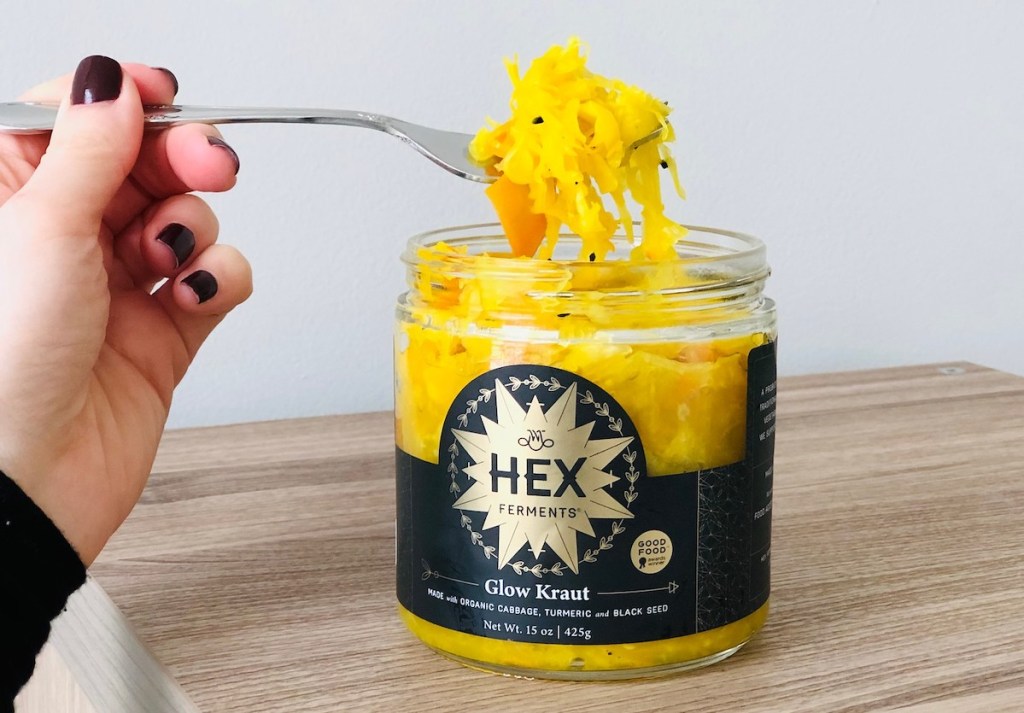
According to WebMD, having the proper amount of good microorganisms can influence metabolism and the immune system, and they may be involved in the development of colorectal cancer, obesity, and diabetes.” As they also shared from Cleveland Clinic dietitian, Kristin Kirkpatrick, “If the good bugs in the gut outnumber the bad bugs, you’re less likely to develop some of the conditions that we know are highly associated with obesity and certain cancers and a whole host of things.”
So, not only do fermented foods enhance the taste of what you’re eating, but they provide your body and gut with tons of rich antioxidants and beneficial probiotics that our bodies need. Probiotics are live micro-organisms crucial to good digestion and overall gut health.
Plus, many forms of fermented food help boost and strengthen immunity, promote healthy weight, relieve irritable bowel syndrome, reduce or prevent gastrointestinal infections, promote good vaginal health and even can prevent UTIs and other vaginal infections, among other things. The benefits will range depending on which foods you’re eating.
Important: Keep in mind that just because you might eat fermented foods, doesn’t always make it healthy. It’s crucial to choose clean, sustainable, organic and whole-foods when shopping for fermented foods and stay away from added ingredients such as sugar, dyes, and other additives.
If you’re shopping for fermented produce (like Kraut), it’s best to choose from the fermented foods in the refrigerated section as opposed to the canned alternatives. This is because canned fermented foods have often been pasteurized which kills off the food bacteria you’re trying to consume, to begin with.
However, fermented foods are also simple and much more affordable to make at home, which can end up saving you a lot of money on your grocery bill.
Pickled foods vs. fermented foods: 🤔
Pickled foods (just like fermented foods) are an ancient way to preserve food, however, they’re very different from each other and the nutritional value oftentimes doesn’t compare. Pickled foods are typically prepared by placing the foods in jars and adding salty water, lemon juice, or a vinegar mixture.
In some cases, like pickles, they can be both fermented and pickled because their fermentation process involves salt. But again, the jars of dill pickles on the dry food aisle that you may have bought for your last cookout are not the same thing. If you’re shooting for some good, fermented cucumbers, head to the refrigerated section or for other delicious & easy pickled recipes to make on your own, check out our sister site, Hip2Keto!
Fermented foods are another way to preserve food by transforming over time from its original state. As previously discussed, this is when the good bacteria eat the sugars and carbs that are in foods that have become fermented. This bacteria preserves the food and ultimately gives you a boost of immunity when you consume it. Not all fermented foods are made the same way.
Here are 5 fermented foods our Hip2Save team loves:
1. Yogurt
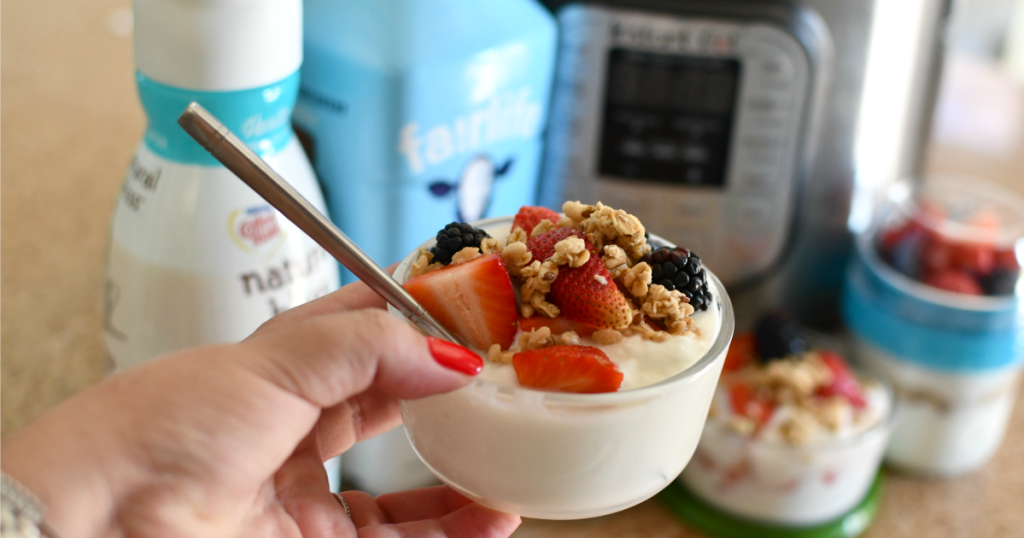
What is Yogurt?
Also spelled as yoghurt, yogourt or yoghourt, this food is made up of milk which is first pasteurized and then fermented with various live bacteria cultures and kept at specific heat temperatures to allow the bacteria to grow. The bacteria used to make yogurt are known as yogurt cultures.
Why is yogurt so great?
Yogurt provides calcium and protein and depending on the type also contains vitamins B6 and B12, riboflavin, potassium, and magnesium. Yogurt is great for promoting healthy gut bacteria, bone health, and better digestion. Yogurts with unnecessary additives and high levels of added sugars are not good for you.
“My family is Greek yogurt obsessed. It tastes yummy, is filling, and helps with good digestion and probiotic health. Now that I’ve figured out how to easily make my own in the Instant Pot, I love it even more and I’m saving money compared to the Noosa brand we were buying before. By making my own, it also allows me to control how much sugar is going into it, too.” – Lina
Hip Tip: Lina shared how she easily made her own money-saving Instant Pot yogurt here along with a ton of other genius hacks you can do with your Instant Pot.
2. Kefir
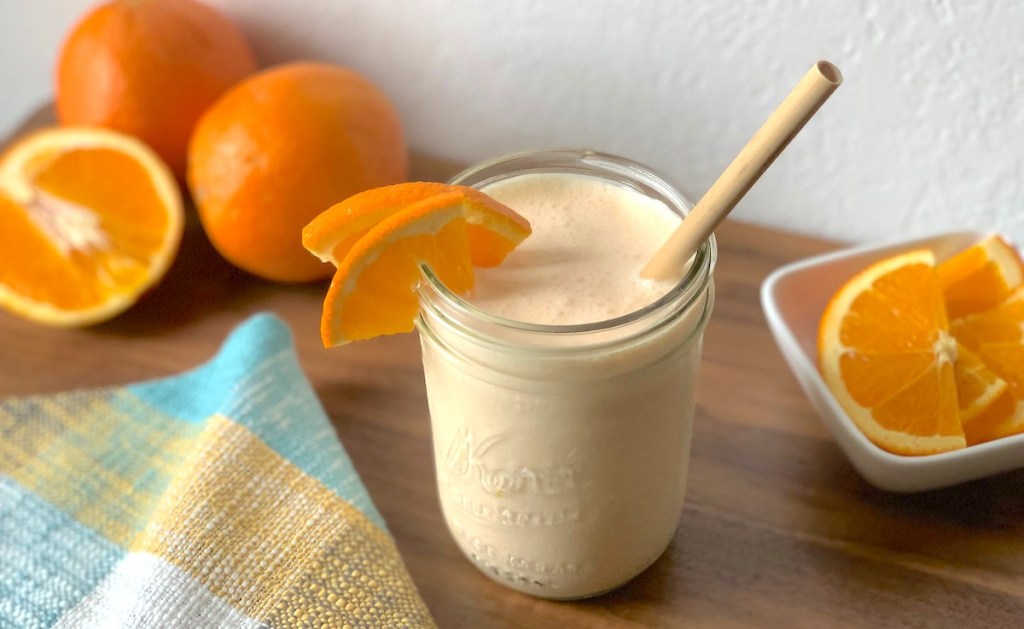
What is Kefir?
Kefir is a fermented milk drink, which is traditionally made with cow’s milk but can also be made with alternatives like coconut milk, goat’s milk, rice milk, and coconut water. Kefir has a tart and creamy flavor, which is made from stater grains and is fermented at room temperature – a combination of yeasts, milk proteins, and bacteria.
Why is Kefir so great?
Although similar to yogurt in taste, Kefir has a one-up on its sister food since it typically has even more protein and probiotics (its strong suit), but it also contains more fat in most cases. However, just like yogurt, it’s also a great source of calcium, B vitamins, and potassium. One study also proved that Kefir possesses strong antimicrobial, anti-inflammatory, antioxidant, and anti-tumor properties.
“I can feel the probiotics working the first day I drink kefir. It’s kind of like liquid yogurt so it’s perfect for smoothies. I haven’t had it in a while (I’m naturally cold so I don’t make smoothies during the winter) but I’m looking forward to it with warmer weather right around the corner! ALDI is my favorite place to buy it and it typically comes in plain or fruit-flavored.” – Emily
Hip Tip: Don’t head for the stores just yet. #StayHome and browse the large variety of Kefir products online at Amazon.
3. Kimchi
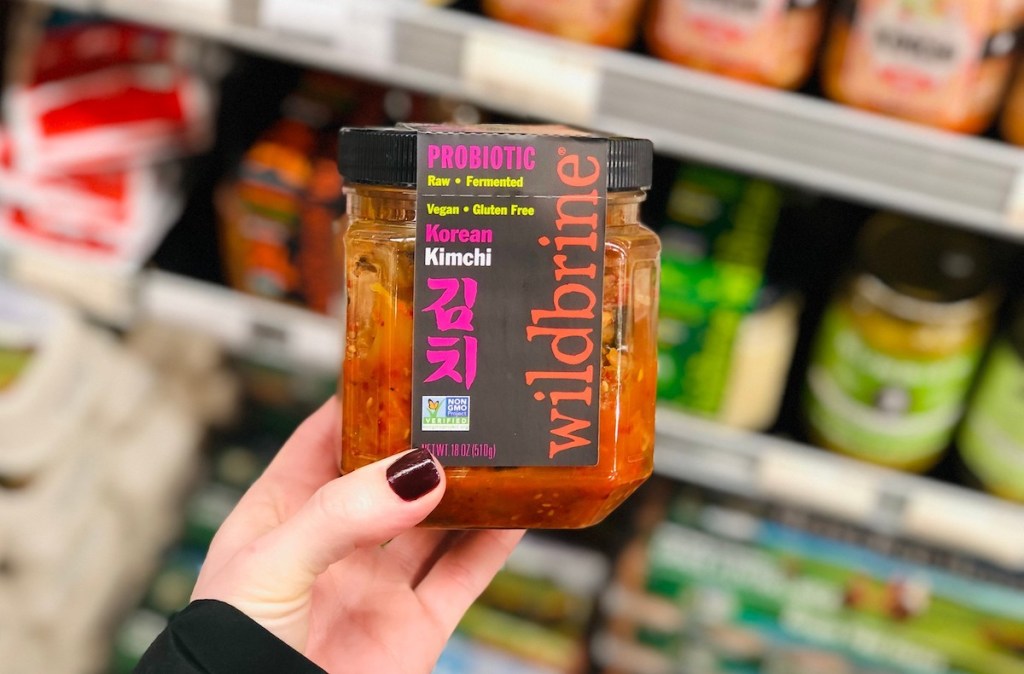
What is Kimchi?
A spicy Korean staple, Kimchi is a blend of fermented vegetables and often times contains cabbage, radish, and sometimes cucumbers. It’s typically spicy and you’ll usually see it seasoned with gochugaru, spring onions, garlic, salt, vinegar, ginger, red pepper flakes and/or jeotgal.
Why is Kimchi so great?
Along with the healthy bacteria and probiotics that Kimchi has to offer, the garlic found in Kimchi also provides many health bonuses. Fermented garlic contains allicin and selenium – both of which are helpful in decreasing cholesterol reserves in our bodies which results in healthier arteries and aids in preventing the chances of developing a stroke or other cardiovascular diseases. Additionally, selenium promotes healthier hair and skin. Kefir also contains a significant amount of vitamin A – great for eyesight among other things.
“This is a Korean staple that helps your gut health. It’s really good and I love that you can get it spicy or mild. It’s not super common in my area so sadly I don’t get it often, but when I do I really enjoy it!” – Jessica
“I love my fermented foods! I get mine from a local small business called Zymbiotics. I am not always great about picking the healthiest thing to eat, so this I feel good about. I put it on eggs and in soup or sometimes I just eat it with a fork. I go through about a jar a week!” – Jenna
Hip Tip: Shop tons of different types of Kimchi online at Amazon.
4. Nattō
What is Nattō?
You may not have heard of Nattō, but it’s a very popular dish in Japan and has been around since the 10th century. It’s made up of fermented soybeans which are first soaked whole, then steamed or boiled. Bacillus subtilis lives on its surface, which allows the fermentation process to begin overtime. Nattō has a distinct, nutty smell and flavor. The Japanese typically enjoy Nattō for breakfast and serve with rice, topped with soy sauce, mustard, or chives.
Why is Nattō so great?
Nattō contains protein, vitamins, minerals, and probiotics, but its greatest attribute of all is its incredibly rich vitamin K2 count which ultimately promotes longevity. In fact, it contains more vitamin K2 than any other food in the entire world! 😱
The benefits of K2 are astounding, too. For one, it improves overall bone health including teeth, forming, strengthening, and repairing and reduces bone loss, fractures, and osteoporosis. It even prevents tooth decay and plaque. If that wasn’t already impressive enough, it also prevents varicose veins, kidney stones, hardening of the arteries, and premature aging. All the while, it reduces the risk and slows the progression of certain cancers and reduces excessive menstrual bleeding. WOW!
“Nattō is something newer to my family, but since my husband is strict vegan, we were excited about the vitamin K2 content of this product. He really enjoys it.” – Jami
Hip Tip: Don’t head for the stores quite yet, while Jami normally shops small for her Nattō, you can still find her favorite brand of Nattō on Amazon!
5. Kraut
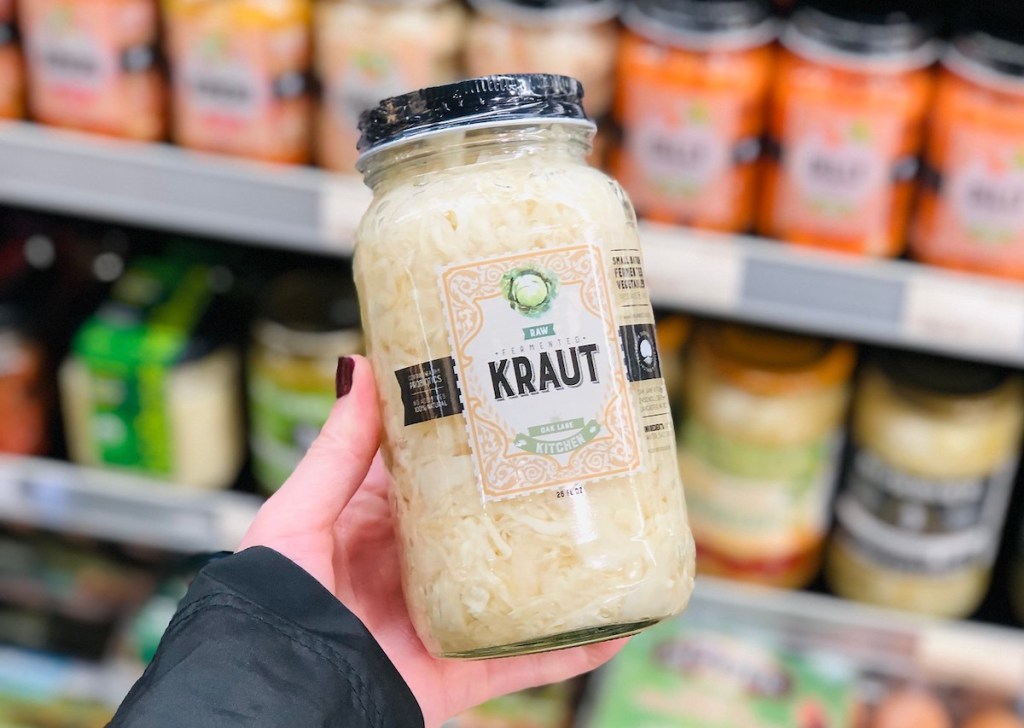
What is Kraut?
Also known as Sauerkraut in the U.S., Kraut is known to have first been established in Germany and was frequently consumed by German soldiers during World War I and World War II. Kraut is made of finely chopped, raw cabbage and salt. When the bacteria ferment the sugars on the cabbage leaves, it creates lactic acid which gives Kraut its distinctive sour flavor. Now it’s often consumed as a popular dish on New Year’s Day with pork, topped on hot dogs, Reuben sandwich, as well as many other well-known American dishes.
Why is Kraut so great?
Kraut is a great source of fiber (reduces the risk of heart disease), vitamin C (a great antioxidant and immune booster), vitamin K, and iron. It also contains much more lactobacillus (a good bacteria) than yogurt so it’s an excellent source for obtaining probiotics. Just a couple of bites of this superfood every day or so can help treat ulcerative colitis and irritable bowel syndrome and can also treat and prevent eczema.
“I just got on a Kraut kick. My Dad, who is German, always ate it when I was growing up and while I never imagined the thought of eating it myself, I really enjoy it now and eat it every day normally with my eggs and avocado. More importantly, I love eating it knowing that I’m providing my body with great probiotics and nutrients.” – Sara
Hip Tip: Check out Amazon where you can find a huge variety of raw, organic Kraut online!
Make fermented foods at home with these highly rated recipes:

- Lina’s favorite yogurt recipe – by ThisOldGal
- Strawberry Kefir Smoothie – by Natalies Health
- Kimchi recipe – by Feasting at home
- Homemade nattō recipe – by Cultures for Health
- German Sauerkraut recipe – by The Spruce Eats
Here’s a list of other types of popular fermented foods & drinks:
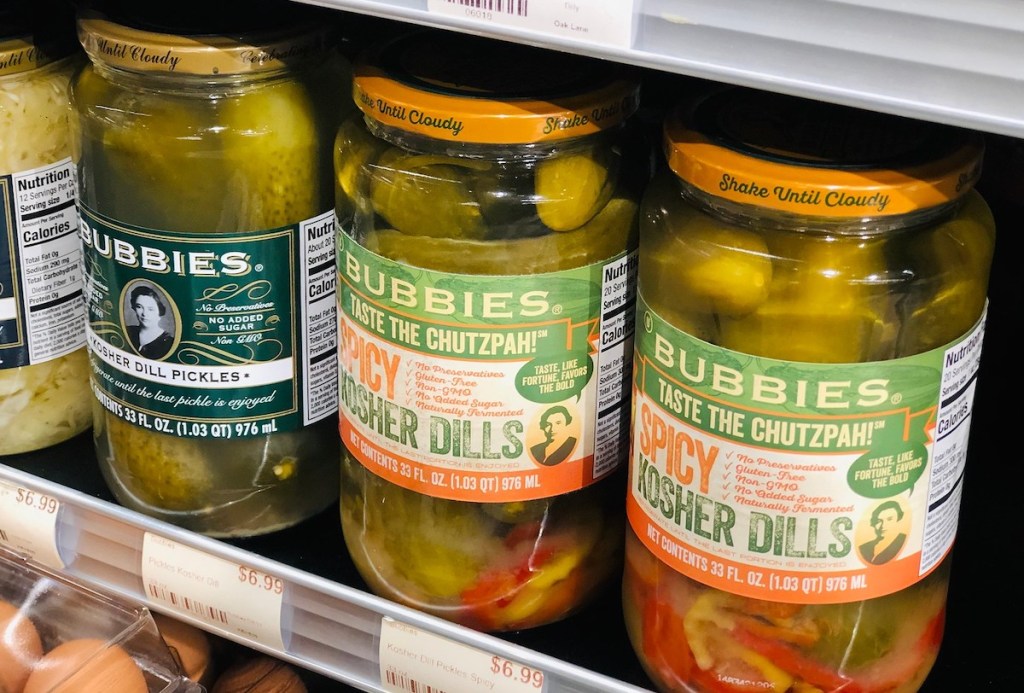
Common foods & liquids that are already fermented:
-
- Apple Cider Vinegar
- Beer
- Cheeses (aged and raw)
- Chocolate (fermented cocoa beans)
- Kombucha (a tea)
- Miso
- Sourdough bread
- Tempeh (fermented soybeans)
- Wine
Other popular foods that can be fermented:
-
- Kohlrabi (cabbage turnip)
- Carrots
- Cauliflower
- Cucumbers
- Peppers
- Pickles
- Radishes
- Snap beans
- Turnips
*Please note that while I did a great deal of research to provide the most accurate and factual information on fermented foods, I am not a medical professional and these recommendations should not be used to attempt to cure any illnesses or medical conditions. If you suffer from any illnesses, medical conditions, are pregnant, nursing, or are just unsure about incorporating fermented foods into your diet, you should always consult your doctor prior to consuming.
Stay healthy at home during gym closures with these FREE workouts!

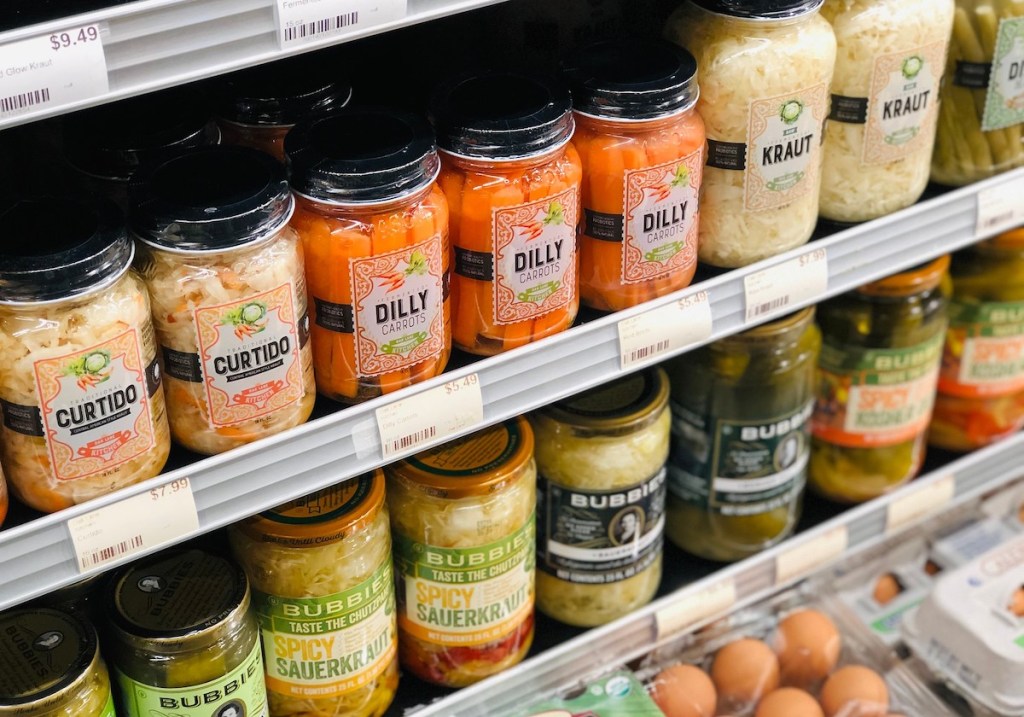
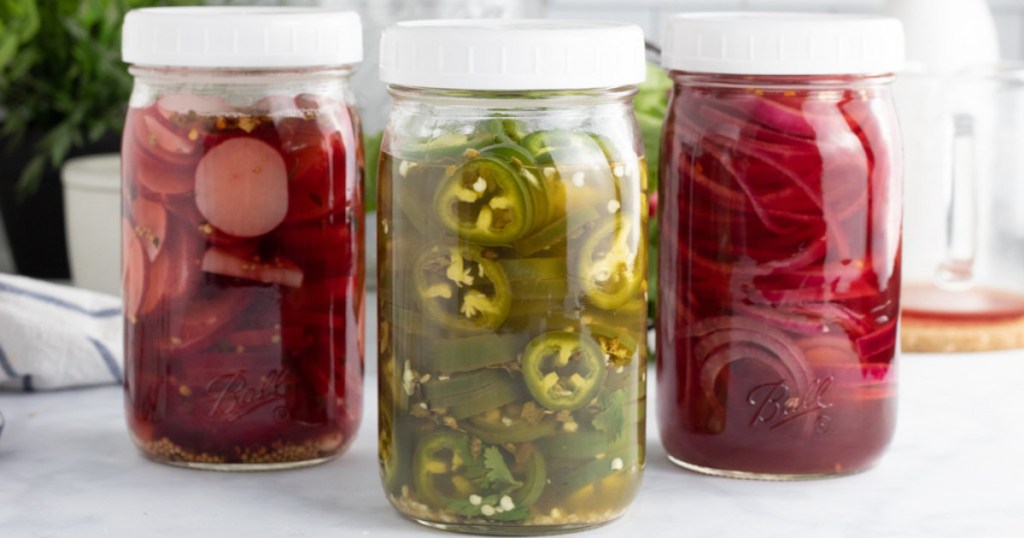
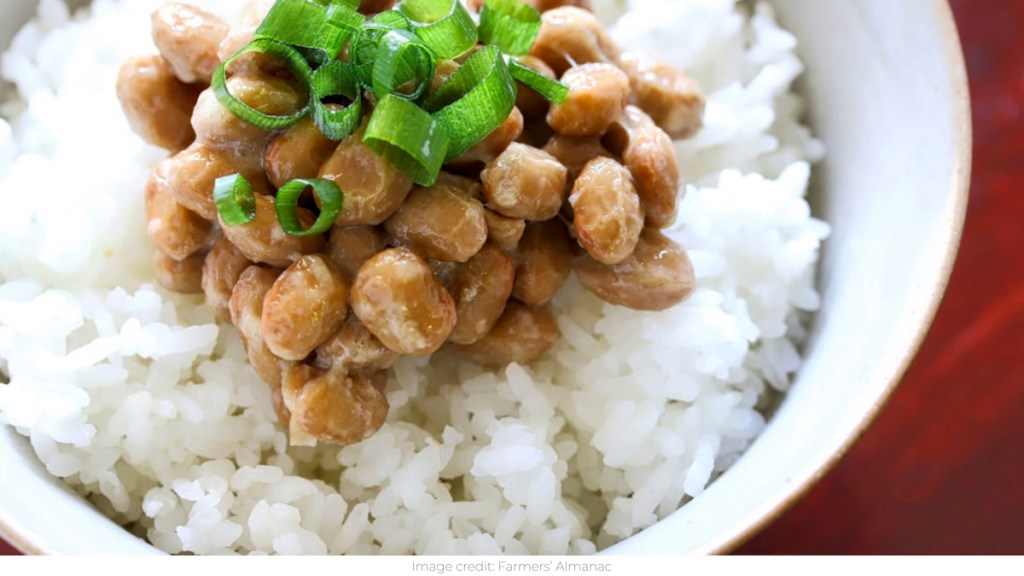




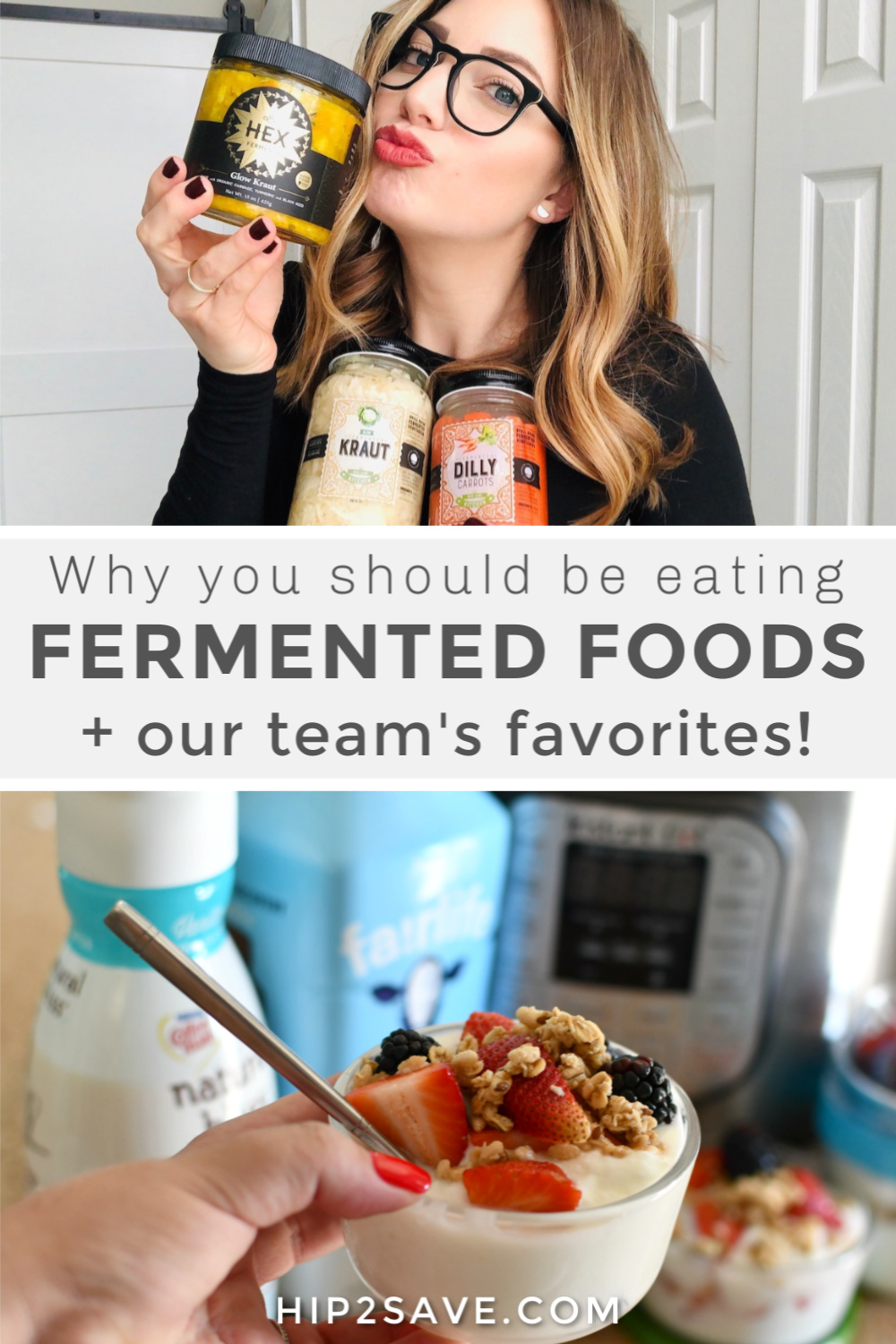

So glad you did this post! I started more fermented foods into our diet a couple years back and you can feel the difference when we go off them for awhile (traveling, moving etc..) Kefir is all the rage in our house. My kids would drink it all day long if I let them. Thanks for the informative post!
Oh and do kefir in green smoothies. My kids can taste the difference when I am out of kefir and just do the green smoothie. They have become kefir snobs..haha.
Please share your recipe for green smoothies with Kefir. I would love to try that!
I love hearing that you have such a healthy family affair going on! Thanks for sharing, amimity, I’m so glad you found this post to be so valuable to you. 🙂
I am asian, laotian to be exact and we eat a lot of fermented dishes. One of my favorite dishes that my mom makes is fermented cabbage green onions. Its sour and tangy! Love it! Makes the house smell strange but hey..food kills all germs! LOL
Haha I bet it’s absolutely delicious! Thanks for sharing, Jenuninely!
Dosa batter is also fermented. Yum!
Hi guys! I’m a lover of pickled and fermented foods for the taste; however, as someone with a medical and scientific research background, I must urge everyone to be careful with homemade fermented foods.
Items like yogurt where you control the bacteria introduced are wonderful; but fermented vegetables like sauerkraut where you depend on introduction of natural airborne bacteria can be harmful for your health. My colleague ran genetic analysis of bacteria in homemade sauerkraut and kimchi, finding over 700 and 1000 bacterial species in these foods respectively. The vast majority of the bacterial species were beneficial; however, there were also a significant subset of harmful and unknown bacterial species.
Now, the harmful bacteria found in fermented foods are very unlikely to kill you (except if you get C. botulinum); however, they have been associated with increased risk of stomach cancer and esophageal cancer in epidemiological studies. I’m not trying to scare anyone away from fermented foods (there are positive and negative sides like for everything else), but I want to help temper the current craze and recommend that people stick to foods with controlled good bacteria species if solely trying to get probiotic health benefits.
THIS!!! I was just about to post something like this. It’s great you guys are promoting healthy eating, but honestly it really bothered me to know y’all are promoting keto when it’s a horribly unhealthy diet. Now as you remote this this is something that’s better but there are risks involved. I suggest using better resources, as in not Web MD, and having someone who’s better versed in Nutriton speak about these kinds of things. As someone who has a degree in Nutriton and is now becoming a doctor I can say diet changes are critical to living a healthier life but if that diet choice isn’t right for you specifically it can be detrimental to your health later on. Fermented foods are not good for people who suffer from migraines. And if you’re going to eat probiotic foods you should really focus on ALL of your gut flora not just one part of your gut, which houses a huge part of your immune system( basically all of it ). Please please consult with an RD or doctor before making major changes. Small slow educated changes are better. One great resource if for true healthy eating if you’re on Instagram is @functional.foods , @meowmeix , and @livevitae If you guys would ever consider having someone write health and Nutriton articles for the site I’m sure there’s plenty of us who would love to who are highly educated on the topics at hand 👌🏻 be safe everyone.
Hi there! As stated in the post, I am not a medical professional, rather just a person wanting to share my joy in eating fermented foods and finding sources stating their benefits! As with any dietary decision, consulting with your doctor is the best and safest route, and always something we recommend to readers.
I also wanted to mention in regards to our keto site, Hip2Keto, that we do, in fact, work directly with a nutritionist to make sure we are sharing medically-backed information, while still promoting for readers to seek guidance from their doctor on their keto journey.
We respect and understand it is not a lifestyle everyone, but want to provide recipes, tips, and resources for those who do follow a ketogenic way of eating.
As always, to each their own. And as stated by the commenters above and within our post, please consult a medical professional if you have concerns or questions about incorporating fermented foods into your diet.
Healthy Gut Girl Kitty Martone is who I follow. Lovely person as well as knows her stuff!
Awesome! Thanks for sharing, Dana!
I lived in Korea for a year and a half and still eat kimchi/cook Korean food at home on a regular basis. While living there, I was told more than once that kimchi was the reason Korea was less affected than other East Asian nations during the SARS outbreak. Obviously, that isn’t necessarily the ONLY reason, but eating kimchi at every meal has significant improvement to their overall health! If cabbage isn’t your thing, they also make kimchi out of other vegetables too, though cabbage is by far the most popular.
Wow! That is so interesting. Thanks for sharing that with us, Casey!
Thank you guys for all the awesome random tips and articles with all this craziness going on. I appreciate it!
You’re very welcome, Ang! We’re so glad you have been enjoying the posts! Thanks a TON for your kind comment and for stopping by each day! We truly appreciate YOU! 🥰
You’re so welcome, Ang! I’m so glad you love this post along with all of the other great content that our team is putting out. Have a great day!
I have been eating fermented foods before I guess it was in.
I love sauerkraut and I do drink kefir each day.
Probiotics too. Hope that it will be good for me in the long run.
That is so great to hear, Maureen! Keep up the amazing work!
I buy homemade almost a gallon size glass jar of Kimche for $20 at a Korean grocery store in my area, Jacksonville, FL. I put Kimche in soup, fired rice, stir fry with meat and other vegetables or just eat as itself! I highly recommend to check out local oriental stores in your area because it’s cheaper, flesh, and taste better than buying from Walmart or other franchised supermarkets.
Such a great tip, Coco! Thanks so much for sharing with us. All of those dishes you enjoy sure sound amazing!
Love this article! Thanks for the wealth of info! I am a fan of the Body Ecology Diet. If you naturally love vinegar/sour/tart things you will love fermented foods! If you don’t you can always add a little stevia to it. Although probably not organic you can find traditional asian natto at most asian supermarkets for a lot cheaper. some brands taste “funkier” than others so don’t give up if you bought a batch you don’t like. If anyone can help me i’d love to find a fruity kefir that my kids will like but with less sugar than I often find in the stores.
I’m so glad you enjoyed this post, Mommyof3! Hope you have a wonderful day. If I find any fruit-flavored, I’ll be sure to update you with where to get it. 🙂
You might warn folks about the gas, bloating and sodium from eating a lot of fermented foods. People tend to jump into food fads and go way overboard without checking with their doctors or a registered dietitian. That disclaimer on your post should be big and bold. Also, I’m surprised you haven’t discovered that organics use pesticides, and in some cases, older, less effective pesticides that can be much scarier than synthetic ones. Jumping on trends and promoting diets on a deals page is really a step outside your area of expertise. I hope everyone stays in good health and takes in everything with a critical and discerning grain of salt (pun intended).
Could you tell me what the brand of Carrot dilly and Kraut are on the top shelf please?
Sara got it from a local farm where she lives. Tomorrow, she will see if you can buy this brand in retail stores and get back to you.
Thank you 🙂
Good morning Patricia! Here is the link to the company that makes the Kraut https://www.oaklanekitchen.com/ Not sure if they ship product, but I do see that they’re in a few different retailers. 🙂
Thank you 💝💝💝💝💝💝💝
Wine is my favorite fermented food!😄
Haha! It sure is good, Mima! 🙂
i find it a little crazy that you guys are always posting fad diets, seeing as owner of this site has said she has struggled with an ED. Promoting things like this can hurt people. We should all choose what is best for us and eat normally. “Diets” are not normal eating and usually deprive your body of a bunch of things it needs.
You forgot Kombucha! I make this and it is so delish and save a ton of $ making it myself. So easy, just get a Scoby from your local brew supply store. Water, black tea bags, sugar, and add scoby, joile’. It is sooo good. I have a recipe for a 1 gallon batch if anyone wants to know. Laurafuller1@gmail.com
Kombucha is on our list at the end, siena95! I’m so glad to hear that you enjoy it so much. Have a great day!
Great article, Sara! And a lovely model, too!
Thank you so much, laurakeithking! 🙂